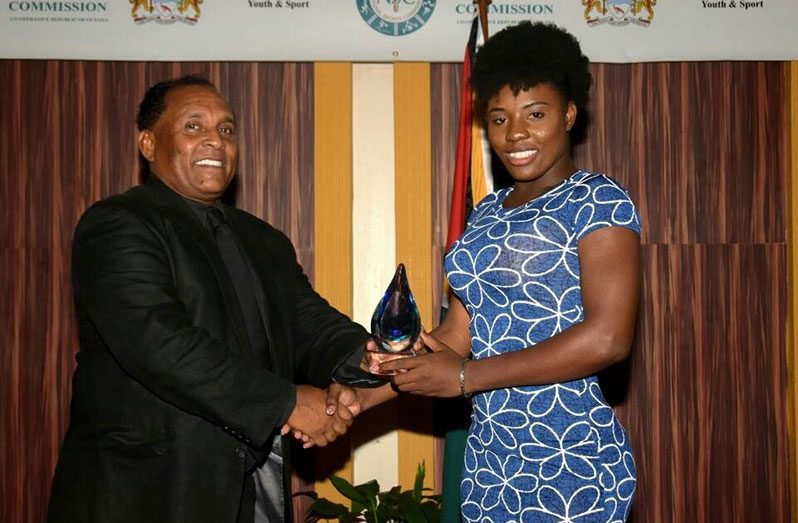“THE media has a significant influence both as a vehicle to transform society’s views on women and gender equality, as well as in normalising women’s sport. It has tremendous reach and the power to reinforce positive attitudes in society.
Frequent visibility of women’s sport plays out at a more implicit level, too, making it a natural and accepted part of the sports media landscape. It also acts as a counterbalance to negative stereotyping of women in the media, through the portrayal of positive, healthy, athlete role-models.”
This is according to a study conducted by the Women In Sport Organisation, a charity focusing on promoting the work of women in the sports fraternity and breaking down gender equalities in the sport sector worldwide.
Recently, the Pepperpot Magazine sat down with former Sports Journalist Tamica Garnett, who shared in detail regarding whether or not it is disadvantageous to play a major role in Sports Journalism in a predominantly male-dominated profession.
“For me, I would say it was advantageous. At the time when I was a sports journalist, I was one of the only females covering sporting events [locally], so the male journalists were very respectfully protective of me,” Tamica explained. “They were always willing to be helpful and provide guidance, and advise or check in to make sure I’m doing okay and not coming up against any issues. I got some of my best sports journalism and life advice as a woman, thanks to my years as a female journalist.”
Garnett also recalled that when she first got involved in sports journalism, she was very worried about being treated differently, or seen as less, because she was a woman. But instead, she explained that she was judged on the basis of the merit of her work and her personality. “The only different treatment I received was that other male colleagues looked out for me a little more than they would a male colleague. This was both because I was a female and because I was young,” she said.
She noted that being in a predominantly male-dominated area also gives you a sense of pride and it’s a great confidence boost, particularly when you’re getting compliments for your work.
Garnett also reflected on some of the challenges she faced as a female Sports Journalist.
“When I started as a sports journalist, I was completely new to journalism, so a big challenge for me, in the beginning, was having confidence in myself and my work. I also had to learn and adapt really fast because even though it was all new to me, I was expected to hit the ground running and training was minimal. Working was your training,” she explained.
Competitiveness
According to Garnett, sports journalism, like many other disciplines, is a competitive arena. “There is always that drive to be the first to break a news announcement or get an exclusive interview. And that will always exist in journalism overall. I’m a naturally driven person, so I did feel a need to be competitive against anyone in the industry and prove myself as a competent sports journalist,” she said. “I did feel a need to be specifically competitive because I’m a woman competing against men. Because I was representing an entire group, and I wanted to show that we can be on par with, or even be better than, the men in this game.”
The question regarding attracting more female sports journalists to the profession was adequately addressed by Garnett, who noted that she believes that journalism as a whole has a challenge with attracting persons to the profession, so sports journalism is part and parcel of that challenge.
“I do believe it’s an interesting area for more women in Guyana to get involved in, given that there aren’t many women involved, and it is a welcoming environment to women. But most of the women who would be competent enough to make it as sports journalists would be too preoccupied with other professions, and the incentives just aren’t there to attract more women to it,” Garnett told Pepperpot Magazine.
She added that she was excited and enthusiastic about being a female in a male-dominated area.
“I wanted to break down stereotypes and do my part to put out a good image of a woman in a male-dominated area. I was very excited to break glass ceilings and be among those women who showed the world that as women, there really is nothing we can’t do. I was also in love with writing, as I still am, and the profession gave me a platform to sharpen my writing skills. I also loved how it forced me to be confident and grow as an individual and as a woman. I also loved that journalism gives you a platform to tell the stories of those whose stories need to be heard, and to bring attention to important issues,” Garnett noted during her interview.
Garnett believes that women in sports and in sports journalism can go as far as their skills and abilities can take them.
“I think the biggest barrier to women getting into this field is more a matter of perception than there being actual impediments. I think many women may have self-imposed barriers that would make them choose not to get involved in sports journalism. Maybe they think that persons would put them down or see them as less, but I’m a testament to just how much that isn’t true about sports journalism in Guyana,” Garnett said.



.jpg)









